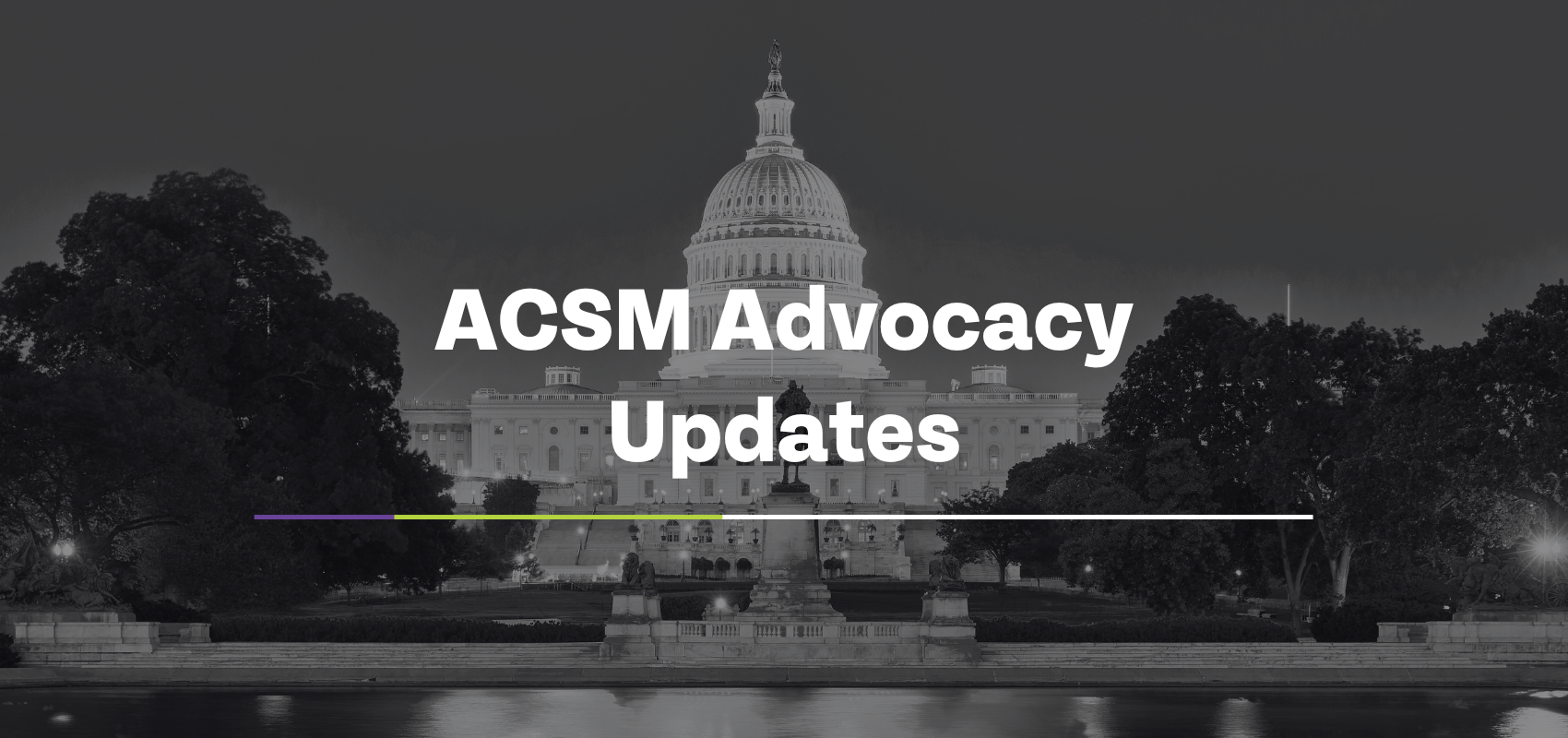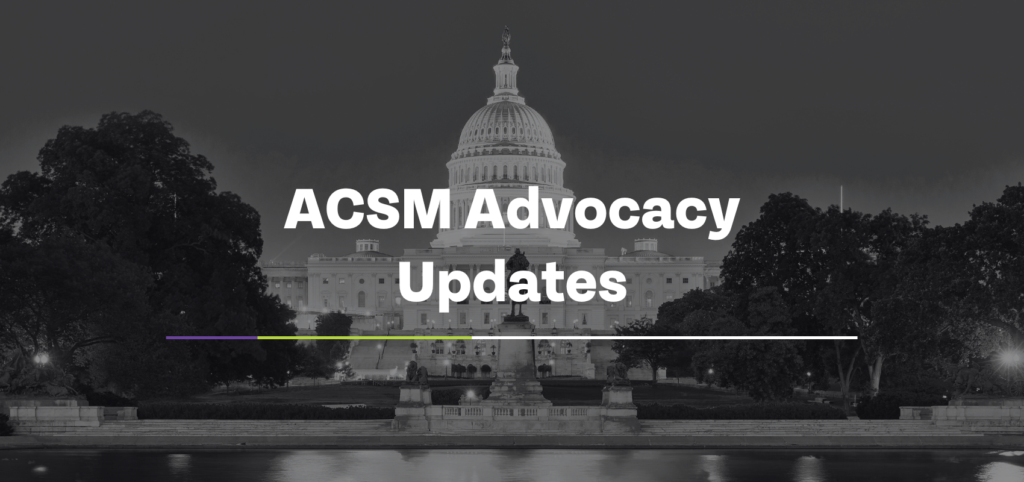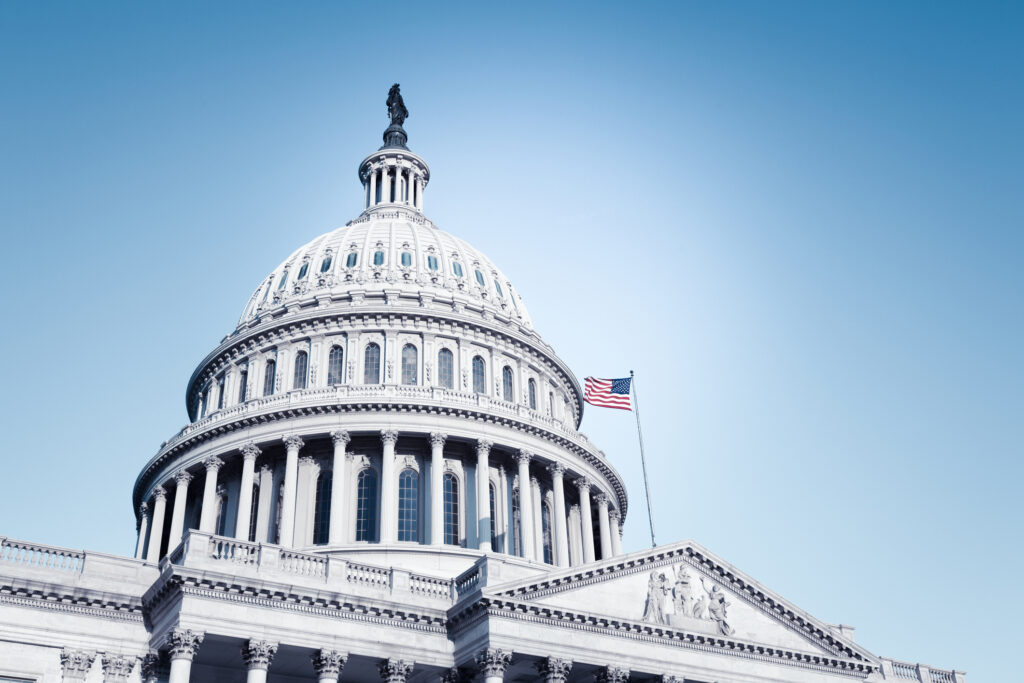As we embark on a new year, the American College of Sports Medicine (ACSM) is excited to outline its key policy goals for 2024. These initiatives are crafted with a vision to promote health and wellness, empower communities, and contribute to the overall well-being of individuals across the nation.
Promoting Physical Activity as a Public Health Priority
- Advocate for increased funding and resources dedicated to public health campaigns that emphasize the importance of regular physical activity.
- Collaborate with policymakers to integrate physical activity initiatives into broader public health strategies, aiming to reduce the prevalence of chronic diseases.
Addressing Health Disparities Through Inclusive Wellness Programs
- Champion policies that encourage the development and implementation of inclusive wellness programs, ensuring accessibility for individuals of all backgrounds and abilities.
- Collaborate with community organizations to create targeted initiatives addressing health disparities, with a focus on underrepresented populations.
Enhancing Physical Education in Schools
- Advocate for comprehensive, evidence-based physical education curricula that prioritize long-term health and fitness.
- Work with education stakeholders to ensure that schools have the necessary resources and support to provide high-quality physical education to all students.
Supporting Research and Innovation in Exercise Science
- Promote policies that allocate resources to advance research in exercise science, with a focus on discovering innovative approaches to improve physical and mental health.
- Advocate for increased funding for research grants, fostering collaboration between academia, industry, and healthcare professionals.
Fostering Healthy Work Environments
- Collaborate with businesses and policymakers to encourage the implementation of workplace wellness programs, promoting physical activity and mental well-being among employees.
- Advocate for policies that incentivize companies to create environments conducive to a healthy and active lifestyle.
Ensuring Access to Exercise Professionals’ Expertise
- Advocate for policies that support increased access to exercise professionals, ensuring that individuals of all ages have timely and affordable access to expert care.
- Collaborate with healthcare organizations to develop strategies for integrating exercise professionals’ expertise into primary care settings.
ACSM is committed to working diligently on these policy goals throughout 2024, with the belief that these initiatives will contribute significantly to building a healthier and more active nation. The college looks forward to the support and collaboration of its members and certified professionals as we strive to make lasting, positive impacts on the health and well-being of individuals across the United States.
Legislative Spotlight
PHIT Act
In 2018, the Personal Health Investment Today (PHIT) Act passed the House of Representatives for the first time, but Congress adjourned before the Senate could vote. On March 14, 2023, Representative Mike Kelly [R-PA] and Senator John Thune [R-SD] reintroduced PHIT in the House (H.R. 1582) and Senate (S. 786). Currently, there are 61 cosponsors in the House of Representatives and 16 cosponsors in the Senate.
PHIT will allow flexible spending accounts (FSAs) and health savings accounts (HSAs) to pay for health club memberships, fitness equipment, exercise videos, and youth sports leagues. If passed, PHIT would enable individuals to use up to $1,000 per year—up to $2,000 for families—to cover physical activity-related expenses.
4 Reasons to Support the PHIT Act
- SAVINGS: PHIT could help Americans save 20-30% on yearly expenses related to physical activity. By increasing physical activity, reducing smoking and obesity, and improving treatment rates, $116 billion could be saved yearly.
- PREVENT & REDUCE CHRONIC DISEASES: Physical activity is a cost-effective way to prevent and reduce chronic diseases, which account for approximately 86% of nationwide healthcare costs.
- HELP KIDS SUCCEED: Children and adolescents who exercise regularly experience less anxiety and stress, have healthier bones and muscles, develop higher self-esteem, and are less likely to be obese—which could save them up to $19,000 in lifetime medical costs.
- THINK BETTER, FEEL BETTER: Physical activity can help prevent depression, and can be an effective treatment comparable to pharmacotherapy or psychotherapy. It can also help improve cognitive ability and reduce the risk of dementia.
The PHIT Act will play an important role in getting more Americans up and active by lowering the cost of physical activity through tax incentives. PHIT continues to gain bipartisan support in both the House and Senate. For more information on H.R. 1582, please click here. For more information on S. 786, please click here.




